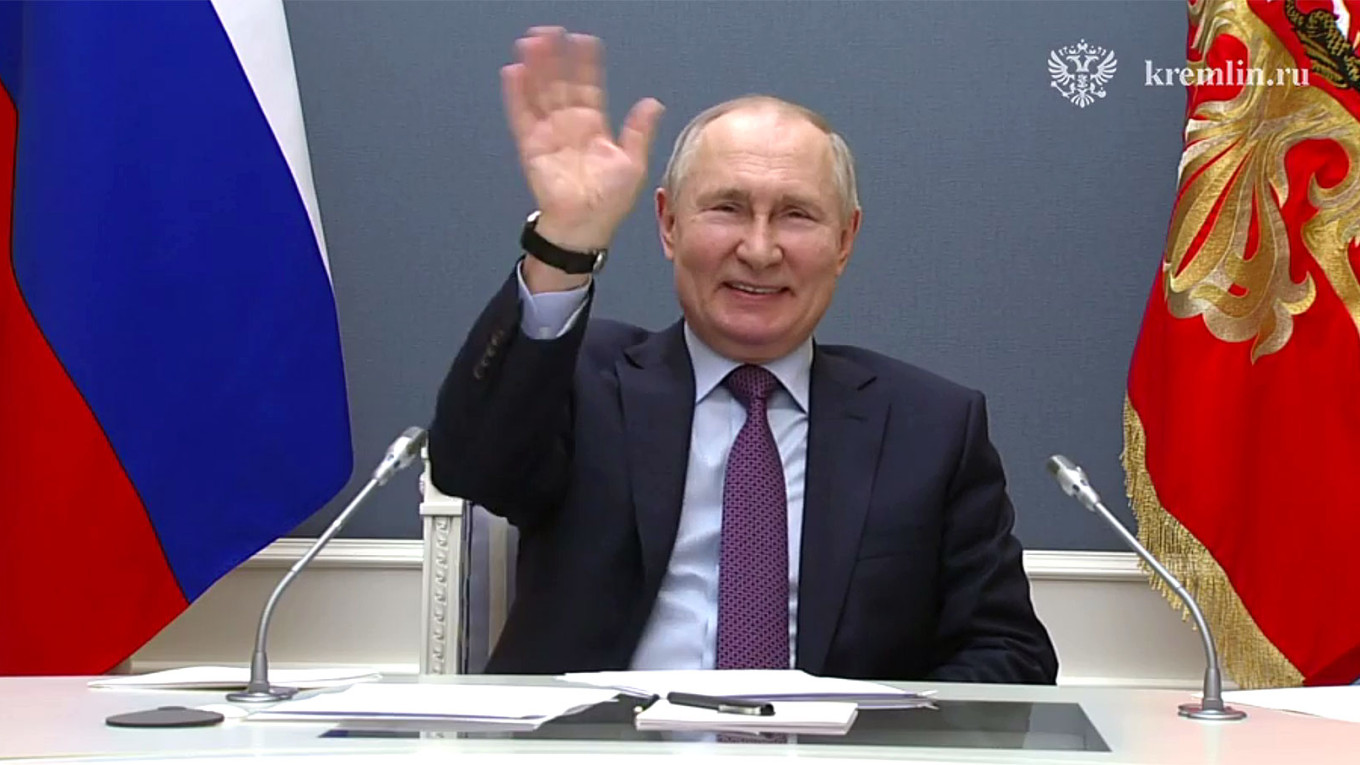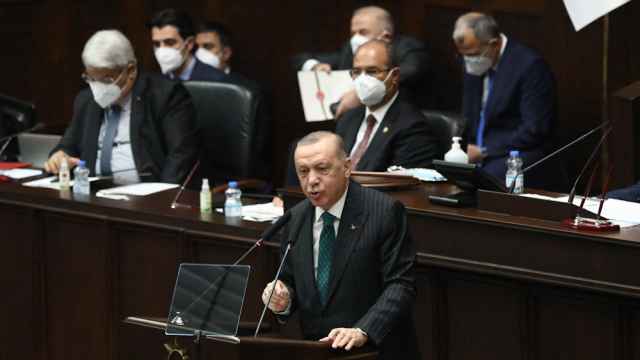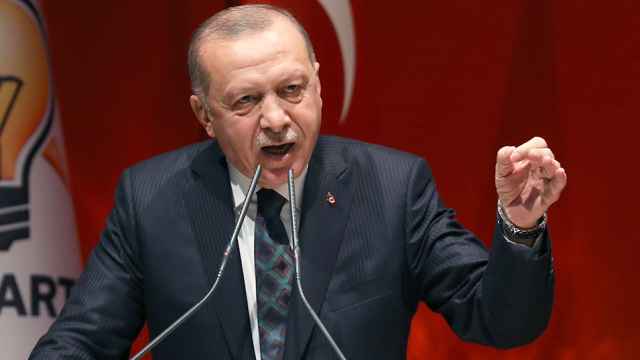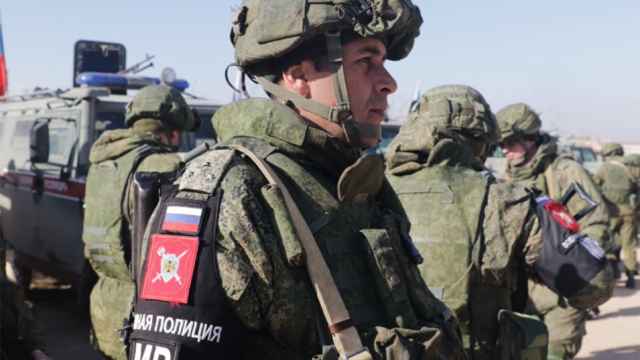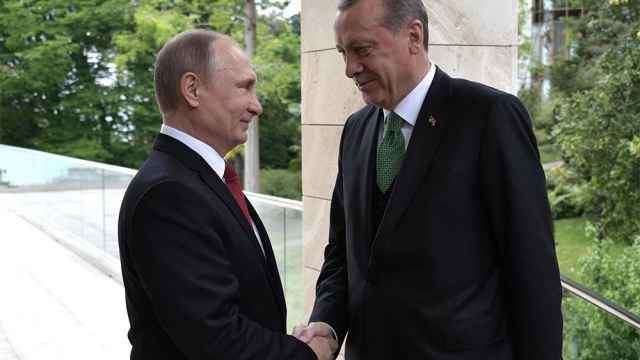Russian President Vladimir Putin on Thursday hailed the loading of fuel into the first reactor at Turkey's Russia-built Akkuyu nuclear power plant, the Kremlin said.
“This is a flagship project and it brings both mutual economic benefits and, of course, helps to strengthen the multifaceted partnership between our two states,” Putin said at the virtual unveiling ceremony alongside his Turkish counterpart Recep Tayyip Erdogan.
Russian state nuclear firm Rosatom started building the first of four planned reactors at the Akkuyu plant on Turkey's southern coast in 2018. When completed, the plant’s four reactors will operate with a total capacity of 4,800 megawatts.
“Our country has risen to the league of nations with nuclear power, albeit after a 60-year delay,” Erdogan said in prepared remarks in his first appearance after a two-day absence prompted by a health scare.
The unveiling ceremony was also attended by International Atomic Energy Agency (IAEA) Director General Rafael Grossi, Rosatom Director General Alexei Likhachev and Turkish Energy and Natural Resources Minister Fatih Donmez.
In a separate phone conversation Thursday, Putin and Erdogan discussed the Black Sea Grain Initiative and the situation in Ukraine.
“Of course, in addition to cooperation in the realm of the peaceful atom, we also discussed other issues in the development of the entire range of Russian-Turkish relations, and in this regard, a number of fundamentally important joint agreements have been reached,” the state-run TASS news agency quoted Putin as saying.
Construction of the Akkuyu plant was complicated by sanctions the West imposed on Russia for its invasion of Ukraine.
"Yes, we have certain logistical problems," Akkuyu plant director Sergei Butskikh told reporters on the eve of the launch.
"The transportation routes are getting longer. Not all of the shipping companies are able to work with us. So here yes, we feel the sanctions," he added.
"But this has not affected the quality of the plant's construction."
Erdogan has been one of the few world leaders to maintain good relations with Putin by refusing to sign up to Western sanctions on Russia and trying to mediate an end to the war.
Putin on Thursday praised Erdogan's leadership ahead of a key election in the NATO country.
"The president personally pays great attention to the expansion of Russian-Turkish relations," he said at the launch ceremony, adding: "we certainly support this inclination and are convinced that close cooperation and partnership between Russia and Turkey are mutually beneficial."
AFP contributed reporting.
A Message from The Moscow Times:
Dear readers,
We are facing unprecedented challenges. Russia's Prosecutor General's Office has designated The Moscow Times as an "undesirable" organization, criminalizing our work and putting our staff at risk of prosecution. This follows our earlier unjust labeling as a "foreign agent."
These actions are direct attempts to silence independent journalism in Russia. The authorities claim our work "discredits the decisions of the Russian leadership." We see things differently: we strive to provide accurate, unbiased reporting on Russia.
We, the journalists of The Moscow Times, refuse to be silenced. But to continue our work, we need your help.
Your support, no matter how small, makes a world of difference. If you can, please support us monthly starting from just $2. It's quick to set up, and every contribution makes a significant impact.
By supporting The Moscow Times, you're defending open, independent journalism in the face of repression. Thank you for standing with us.
Remind me later.


